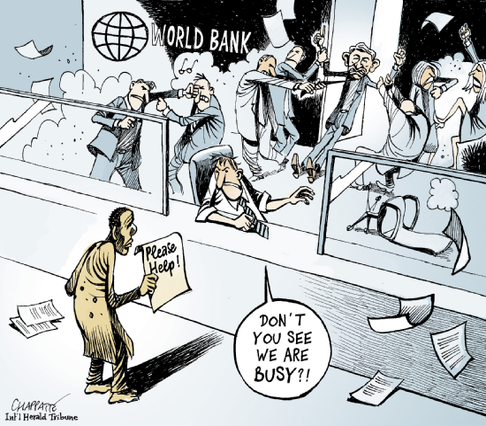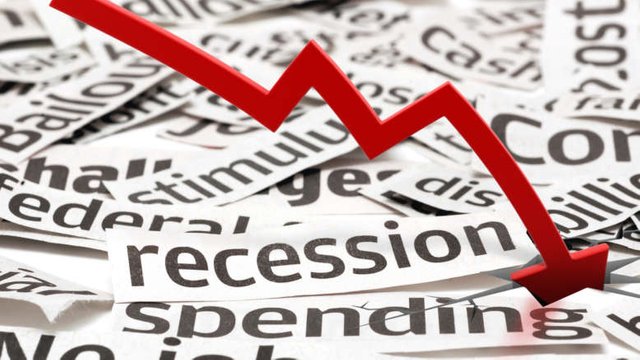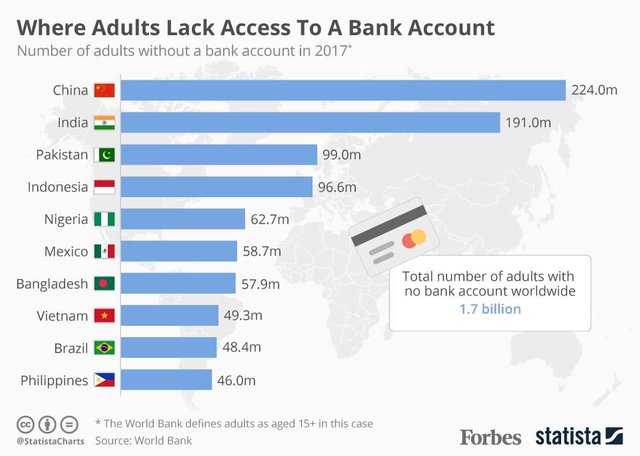Tackling Poverty with Blockchain Technology

Right now, cryptocurrencies are still seen as a 'fad' or a quick way to make money for ballsy investors. However, there's a key area of crypto that most people don't see is the positive impact it can have (and has already begun to have) on people living in poverty. I think that, in years to come, many large NGOs and impoverished people will be using blockchain technology to tackle poverty and here's why.
Corruption-free Charity
Sadly, when we send our money to impoverished countries, our money doesn’t always end up helping those in need. Be it through corrupt government, fraudulent charities or gangs controlling certain territory, a lot of charitable donations are lost. Donating cryptocurrencies rather than fiat currencies can help to prevent donations experiencing secret changes of hand before reaching the impoverished.
This corruption is avoided due to the immutable, distributed ledger technology of a cryptocurrency such as Bitcoin – once a transaction has been validated, it can never be altered or removed from the ledger. We have already seen this being implemented by the World Food Programme who fed 10,000 Syrian refugees using blockchain technology in May 2017.
Stable Money in Unstable Situations

Many third world countries experience periods of hyperinflation where money becomes almost worthless. A key example is the 2008 hyperinflation of the Zimbabwe dollar which saw inflation of 11,250,000%! Eventually, the Zimbabwe dollar had to be abandoned completely.
It’s near impossible for people in countries with unstable or emerging economies to make investments or have long-term savings due to the high-risk levels. Enter stablecoins, a new type of crypto-project aiming develop stable cryptocurrencies with prices related to fiat currencies. Although the coins may still experience volatility, the security of them appears to outweigh the risks of high volatility assets.
Creating Economic Identities

A reported 2 billion people lack access to financial institutions and bank accounts, with 20% of them receiving cash wages. There are two problems with this; the first being the low security of cash transactions. Unlike a distributed ledger on the blockchain, cash transactions are virtually untraceable making it easier for corruption to happen.
Secondly, a lack of economic identity makes the poor even poorer since having no bank account also meaning having no access to loans, credit scores, secure payments and manage long-term savings.
For example, an impoverished man in Kenya could have an amazingly innovative idea for a business that would begin to boom. However, all of his money is in cash and there isn’t a lot of it since his employer often gives him unfair wages and the local gang takes a large cut of it. With a bank account, his great idea could catapult his family out of poverty and into a stable life with a savings account and money for three meals a day – but this doesn’t happen.
Conclusion
All in all, I believe that blockchain technology could massively help to tackle poverty, especially in third-world countries, but sadly it isn't a magic bullet that will give every human being a fair wage and three square meals a day. Poverty will always be around us but that doesn't mean we should give up on trying to eradicate it.
If you're interested in helping to tackle poverty with blockchain then please consider supporting some projects that are already addressing this issue such as GiveCrypto.org, AidCoin or Little Phil ICO. I'm not affiliated with these projects, I just agree with their principles and hope to see them flourish in years to come.
Great article, @ruellan!